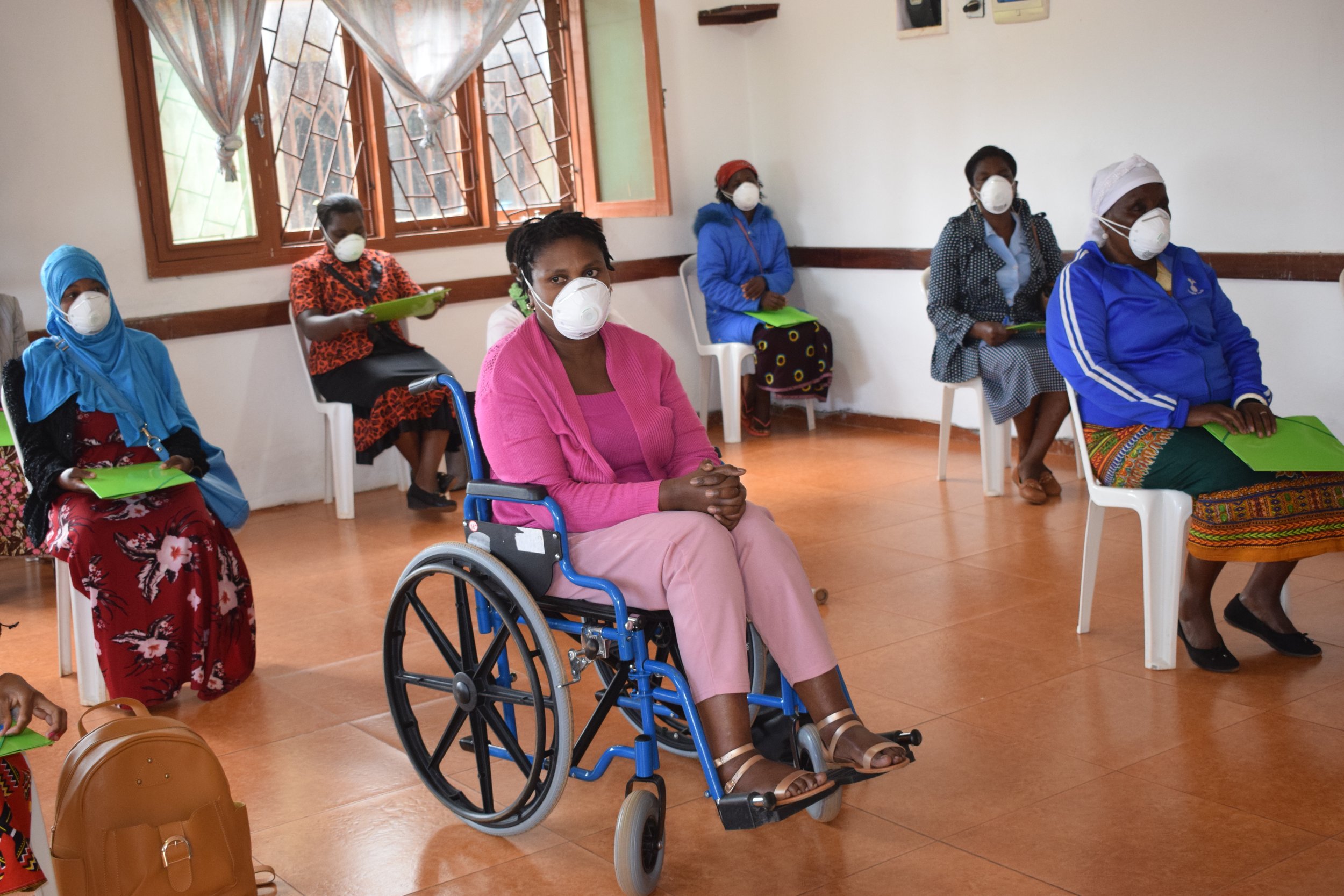Just as we launched our female empowerment project in Niassa province, Mozambique, the COVID-19 pandemic hit. It quickly became apparent that this health crisis would also have a devastating socioeconomic impact, exacerbating many problems that women and girls in Niassa were already facing.
Image: Participants in a COVID-safe business-training session, as part of our ‘Mais Mulheres’ project
Girls are particularly vulnerable to being left behind in education, while women endure the most disproportionate care burdens, disruptions in income, poor access to health, and are at greater risk of domestic violence.
Elfrida (pictured) is one of the 134 women our project supported. A single mother of one son, Elfrida lives with a physical disability that means she has to use a wheelchair. She used to work in a hairdressing salon, which equipped her with the skills, experience and desire to open her own salon - but she wasn’t sure how to put her dream into reality.
Thanks to our project, Elfrida was able to invest in building her own salon (attached to her home) and build her business knowledge through the training sessions.
“There is no other salon nearby, which is a good opportunity for my business,” says Elfrida. “I believe it will be very successful. Especially now during COVID-19, women don’t want to go far away from their homes. This opportunity has the potential to make me self-sufficient.”
Context:
Funded by the Edmond Rothschild Foundation, the ‘Mais Mulheres’ (More Women) project reached 134 women in Niassa province, Mozambique. Business training and capacity building took place throughout April and May 2020. A women’s business centre has also been established in UP’s compound, where a core group of female entrepreneurs provide peer support to other women. All the women who participated in the project reported increased knowledge and business management skills. 60% of participants reported increased profits and a greater sense of teamwork in their relationships with their husbands.


